This is a side blog for all of my interests in TTRPGs. Getting tired of losing a bunch of stuff I reblog when I need them the most.
Last active 4 hours ago
Don't wanna be here? Send us removal request.
Text
a good DM is supposed to work with their players so that they can play whatever build they want, while a player can tune out anything the DM says about the world that they're not interested in, even if it's stuff about what classes, backgrounds, etc. are part of the setting's palette. in fact, a player should be able to treat the game as a single-player game starring their PC if they want to.
hey why are all our DMs burning out?
2K notes
·
View notes
Text
the TTRPG discourse (and by that i mean like actual discussion and depth of though, not like nonproductive arguing) on tumblr is lightyears ahead of bluesky
49 notes
·
View notes
Text
@anim-ttrpgs Monster Investigators in Eureka Moment

469 notes
·
View notes
Text
Have you played Beam Saber ?
By Austin Ramsay

Mechs and their pilots with focus on dramatic storytelling and narrative flow rather than mechanical combat
88 notes
·
View notes
Text
Have you played NECROBIOTIC ?
By Penny for a Tale

After the human race is almost destroyed in a mysterious population collapse, engineers known as Architects figure out how to use dead bodies as raw materials to solve the new labour crisis. The two most vital resources are: 1) living humans, because there aren't many left, and 2) dead humans - because there are a LOT of those. There is mounting evidence that the flesh-made constructs are still sensate.
75 notes
·
View notes
Text
in other news, a list of d100 "classes"
39 notes
·
View notes
Text
One of the benefits of broadening one's horizons beyond the half-a-dozen tabletop RPGs the "play a second game" crowd predictably trots out every time the topic of alternatives to Dungeons & Dragons comes up is that no matter how weird and isolating and unrelatable you think your deal is, eventually you will bump into a game written by and for someone who has exactly the same thing wrong with them that you do.
2K notes
·
View notes
Text
"Any game I play turns into a Queer Game" trite, boring, cliched, smells of apologia for rainbow capitalism
"Anyone who plays my game turns Queer" intriguing, bold, novel, I wish to hear your game's sales pitch
392 notes
·
View notes
Text
I've developed a hypothesis that dungeons and dragons players can be roughly divided into two camps: the D&D players and the DND players. The choice to use the ampersand or the letter N when talking about the game correlates strongly with reasonable takes (&) and wildly uninformed takes (N).
152 notes
·
View notes
Text
VIDEO GAME UNION ‼️‼️‼️‼️‼️ VIDEO GAME UNION ‼️‼️‼️
UNION ‼️‼️ UNION ‼️‼️‼️ UNION ‼️‼️‼️‼️

UNION ‼️‼️ UNION ‼️‼️‼️ UNION ‼️‼️‼️‼️ THIS SHIT GOES SO HARD!!!!! AWOOOOOOOOOOOO 🐺🐺🐺🐺
17K notes
·
View notes
Text

Mad As Hell is a new anti-capitalist demonhunting TTRPG by SoulMuppet Publishing, coming to Kickstarter in 2025, written by Evie Moriarty with illustrations by Per Janke, Scrap Princess and Alex Eckman-Lawn.
Play as Radicals, members of various Communities, banding together to fight the literal demons of capitalism.
The only way to kill demons is to understand what quiet violence created them in the first place, work out how to solve that problem, and turn it into a weapon. You might kill a demon of mouldy water with a purifier, a demon of poison-laced diet drugs with its own reflection, or a demon of bigotry with a pride flag. Unless you address the root cause of the problem, the wound in the world will continue to fester, and the demon will be reborn, free to wreak havoc. To defeat the demon truly, you need to make meaningful social change in your communities and help those around you.
The game is intended to create a safe, lightly fictionalised environment for aspiring and current activists to become familiar with the methods used in community organisation and direct action. It helps provide a structure that mimics the real-world approaches to tackling injustice through a radical lens, and takes action against capitalism. We're working with writers and sensitivity consultants heavily involved in leftist movements, too, which gives everything a strong anti-capitalist slant.
Check out our Quickstart here.
31 notes
·
View notes
Text
people often talk about how d&d 5e is a horrible starting point that makes players struggle with other systems and that's true but it also does this for GMs. so many people i know had their first exposure to ttrpgs through d&d 5e and so view any GM or facilitator role with absolute dread assuming that it is an unpaid game design role that requires not only hours of prep every session but also to carefully micromanage every aspect of the game to singlehandedly balance it for the specific outcome of 'the party wins, but, like, it feels difficult' while simultaneously remembering everyone's rules for them & being treated like a substitute teacher
3K notes
·
View notes
Text
SYSTEM OVERVIEW: Powered by the Apocalypse (PbtA).
This week I’m taking a break from my regular recommendation posts to talk about some indie ttrpg systems that have gained some well-deserved attention over the years. I’m going to introduce you to how they work, why I like them, and what kinds of games are out there!

Powered by the Apocalypse is often described by its progenitor as a game philosophy more than a game system. If you want to learn about the ins and outs of Vincent Baker’s thoughts on this game philosophy, I recommend looking at his series of blog posts about the system, starting here.
There are a lot of things that can be housed within the family of PbtA games, but a game that advertises itself as Powered by the Apocalypse is probably going to have the following elements.

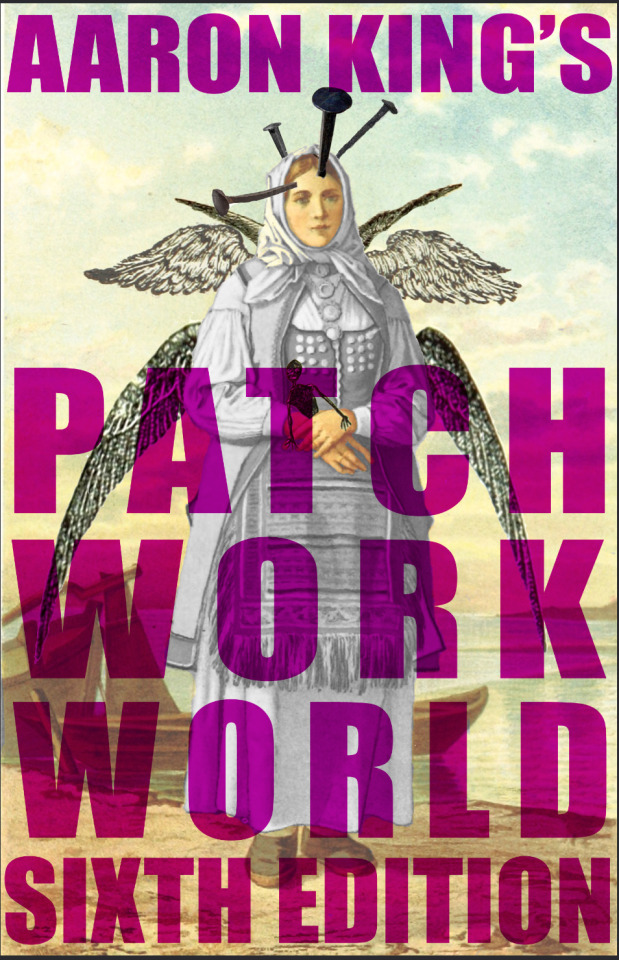

Moves
To do anything, PbtA games have a list of moves available to the whole party, and then certain moves specific to any given players. When you do something that fits the description of the move, you follow the move’s instructions.
Generally, this involves rolling 2d6 and adding a relevant modifier, somewhere between -1 and +3. The most common source of these modifiers comes from player stats, 3-5 player traits assigned to you during character creation that represent your strengths and weaknesses. These traits might be Cool, Sharp, and Hot, like in Apocalypse World, or Spirit, Wit and Heart, like in Thirsty Sword Lesbians, etc.
Other games use different sources of modifiers. In Apocalypse Keys, you’ll spend Tokens gained by roleplaying according to certain prompts, such as feeling lonely or forgotten. In Patchwork World, your modifiers depend on the moves your character takes. Can you become cats? When you burst into 1d6 cats, roll -CATS. Do you have Bee Resonance? You’ll roll +Stress marked.
Some moves might not even require you to roll dice - maybe you just have to use up a resource, or answer a question before that action happens.
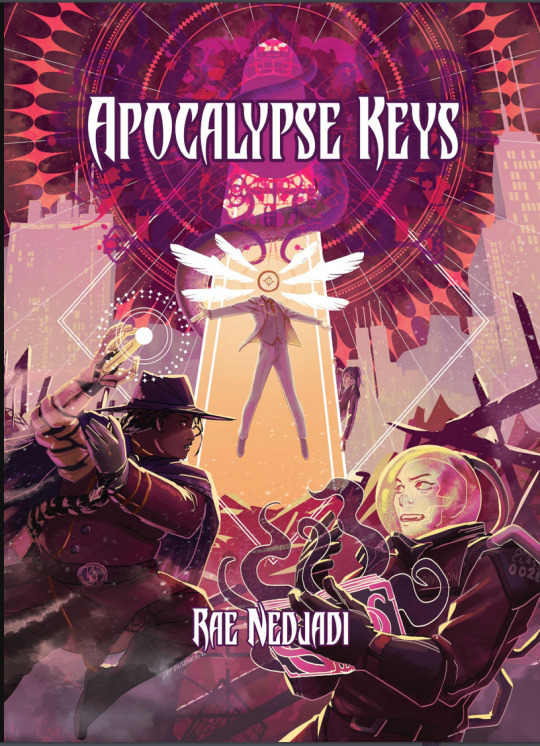

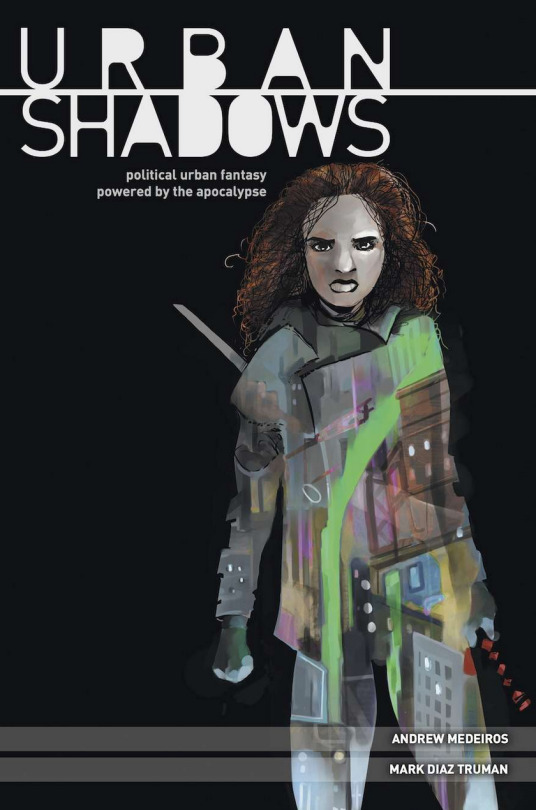
Staggered Successes
PbtA games are not the only games to use this kind of metric, but they’re certainly the most well-known. When you roll dice in these kinds of games, there are generally three different kinds of results you can get: 7-9, 10 and higher, or 6 and below. Usually a 10 or higher allows something spectacular to happen, with a greater amount of narrative control given to the player. A 7-9 is partially successful: the player and GM will likely share narrative control. On a 6 or less, a significant amount of narrative control is given to the GM. 6 or less is usually seen as a turn for the worse, but what that turn looks like is dependant on the game and the genre.
What I like about these results is that regardless of the outcome, the results are meant to be narratively engaging, and push the story forward. Failing to sway the bartender doesn’t stop your plan in its tracks - it leads to the bartender calling forward security, or maybe calling you out on your shit. In a game like Last Fleet, these outcomes push the characters closer and closer to a meltdown. In Urban Shadows 1e, they encourage the characters to deal more intimately with favours and debt. Each outcome should propel you into another fraught situation.



Social Currency.
Having some kind of personal connection to other characters becomes a useful resource in many PbtA games. At the beginning of the game, you’ll answer leading questions that tie you to other characters, in both positive and negative ways. What exactly that personal connection is depends on the game.
In MASKS, your teenage superheroes have Influence over each-other. This Influence is either present, or it isn’t, but when it’s present, it can be spent to encourage other characters to follow your lead or your orders. In Blood Feud, you can look up to or down upon your fellow players, which will change the nature of how you interact with each-other. In Interstitial, you can spend Heart Links to improve your chances of success, adding modifiers to your roll.
I love these mechanics because they encourage the players to engage with each-other - and their interactions don’t have to always be positive either! Monster-Hearts expects your players to be at each-other’s necks just as often as they might be making out, for example.

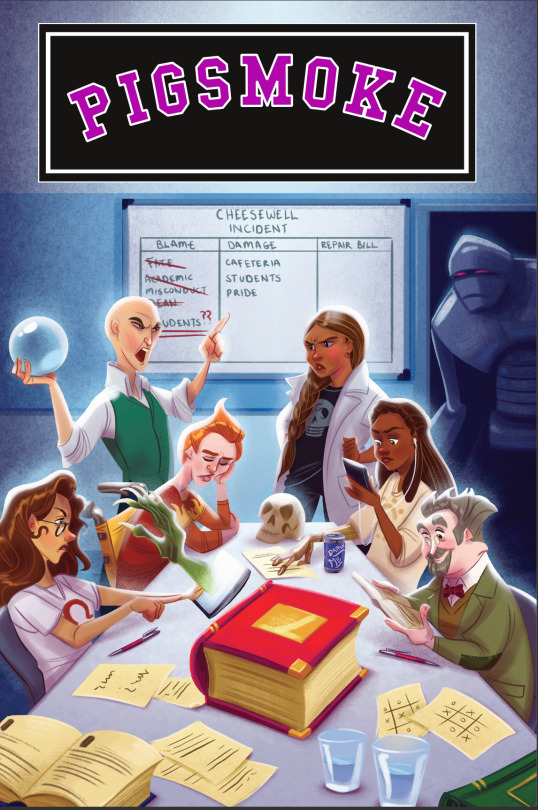

Character Playbooks
Most, though not all, PbtA games have character playbooks - which may not feel like a novel thing, but it’s a big change for folks who are used to putting their character together from a list of options provided in a rulebook. Character playbooks usually provide all of the options for your specific character type on one page. You don’t choose from a big list: you choose a concept, and then select options from that concept.
Often concepts fill out tropes, such as the Git in Pigsmoke, or the Monstrous in Monster of the Week. These may come with pre-assigned stats, or ask you to assign certain stat values as you like. You’ll also choose playbook-specific moves, describe your character, and take note of special advances or forms of harm that may be incurred as you play. This harm might be physical, but it could just as easily be an emotional state, such as in Voidheart Symphony, where your character could become Angry, Callous or Scared.
What I like about this is that it can streamline character creation. If you’re a first-timer to PbtA you might need some guidance, but you can probably still knock out a character in under an hour. If you’re a veteran, you might be able to put a character together in a few minutes.


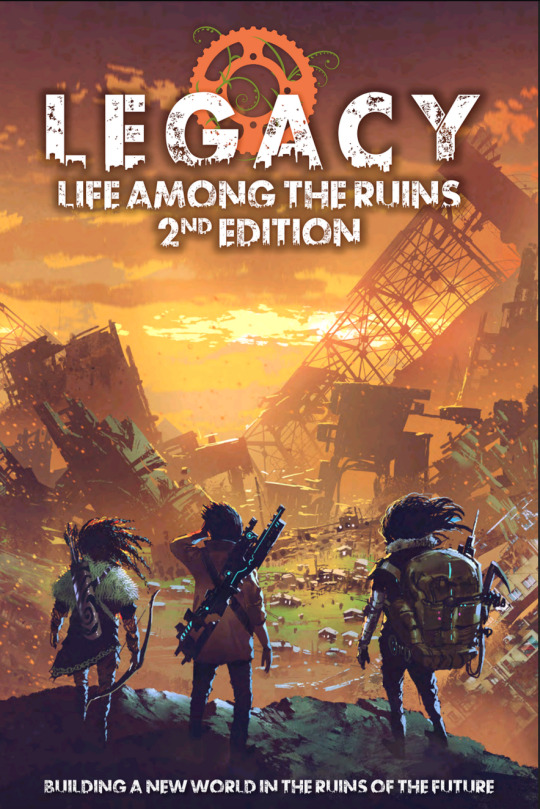
Collaborative World-building.
Any given PbtA game is usually inspired by a short list of media or some kind of genre. Brindlewood Bay is inspired by elderly lady detective fiction and eldritch horror. Sunset Kills is inspired by Buffy the Vampire Slayer and similar supernatural-teenager media. However, the specifics of what your group is doing still has to be determined by the group. This means that you’ll have to decide how you met, how you got here, and what the world around you is like.
For some games, like Legacy: Life Among the Ruins, the character choices you’ve made will determine facts about the end-of-the-world you live in. Did you pick titan-slayers? That means there’s titans walking around. Similarly in Comrades, if you pick the Propagandist, you have a newspaper or radio station as part of your rebellion.
I like about this because it affirms one of the core claims of PbtA: the game is a conversation. You begin your Session 0 sharing ideas as a group, with players having just as much say in the creation of the world as the GM. If you want to speed up the game, the GM may propose a setting to make things more specific. I’ve done this in the past with Wolf Hounds, which I wanted to make fit into my Monster Squad campaign last year.
However, even if the GM makes some decisions about the world, the choices the individual players will affect what parts of that world we’ll focus on. I feel like this experience gives a lot more agency to the players, so if you want to run a game but you don’t want to be responsible for everything that lands on the table, you might want to consider something Powered by the Apocalypse.


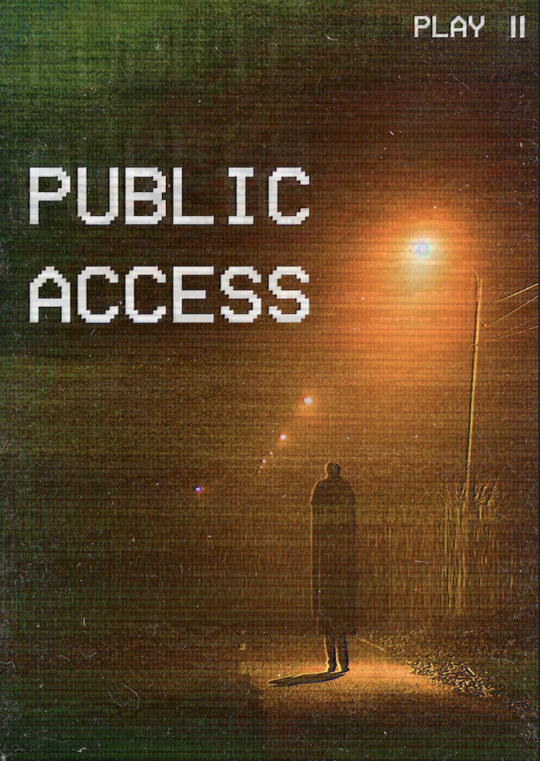
There are some elements of PbtA that can provide quite a bit of whiplash for new players. The game is very reactive, which means that it can be difficult for a traditional GM to figure out what to plan. Some games, like The Between, come with modules or adventures that can make it easier to ease into a GM-ing role. I’d also recommend checking out PbtA games that play in genres that both the GM and the group are very familiar with. If you like teenage superheroes, MASKS will probably be fairly easy to pick up. If you're familiar with found-footage horror, you might be more interested in Public Access.
I’ve talked about a number of PbtA games in the past. Let’s take a look at a few that I haven’t mentioned much.



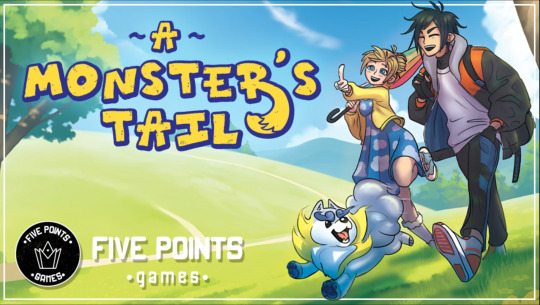
City of Mist is a game by Son of Oak about ordinary people caught up in supernatural investigations as they grow to embody myths and legends.
Trespassers, by BoughandWave is a game about monsters in a wood - but you are not the scariest things in this forest.
Fight Item Run, by Whimsy Machine, is a game meant to replicate beloved video games about dungeons and magic.
A Monster's Tail, by Five Points Games, is an homage to monster catcher media, such as Pokemon, Digimon, and Jade Cocoon.
If you’re interested in PbtA games, you might also want to check out the collection of PbtA games that I’ve put together on Itch!
265 notes
·
View notes
Note
I was finally persuaded into buying Eureka, read the section on disability, and cried, Y'all get it, the illness that wrecked my lungs didn't make me smarter, it just made me worse at physical labor.
Thank you for buying Eureka, and thank you for your kind message!
And yeah, this is very important to Eureka’s themes and stuff, and one of the reasons that its gameplay works the way it does with regard to disability. Because what doesn’t kill you doesn’t make you stronger, it usually leaves you weaker than you were before, but Eureka says so what? Try anyway. Effect is not a binary. Maybe we should value more than just the single strongest person, and not consider someone a failure as soon as their 100% now is just a little bit lower than their 100% in the past, or than someone else’s 100%.
This is something I saw on another post a few days ago but didn’t think it was worth commenting about, so I’m basically making my own post about it here.
It was about Triangle Agency and how Triangle Agency PCs automatically fail at anything risky “because they’re just ordinary people in extraordinary situations, not elite spec ops operatives,” and so they need to use the dice rolling mechanics which literally bend reality to contrive a situation where they can succeed.
I don’t like this for a number of reasons, not all of which I will get into, especially because Triangle Agency has a lot more going on than that, but, well, I think that billions of ordinary people succeed at difficult and/or dangerous tasks every single day, and have throughout all of history. I think that this sentiment that PCs always fail because they’re just ordinary people is the absolute antithesis of Eureka: Investigative Urban Fantasy, which is also a game about ordinary people in extraordinary situations, failing a lot, but also succeeding a lot. Eureka says that you’re more than your crappy, crippled statblock. Not only are people more valuable than the amount of work they can output, but people that kinda suck and are worse at stuff than everyone else around them can still ultimately accomplish a whole lot.

206 notes
·
View notes
Text
People have objected to the comparison between D&D fans and gaylors in terms of imagined gayness but like. I'm sorry babes, but the gayness of D&D literally is imagined.
D&D has queer representation in its art and fiction, this is true. Does that representation actually matter for the sake of the themes of the game and its gameplay, as presented in the game? No. You can decide that your elf is gay, and hey, who wouldn't, but the game will just stare at you blankly and not do anything with that information. It's literally fluff in the same sense that your character having blue eyes or being left-handed is. As written the game has nowhere to go with from that information.
But even more so, the thing that inspired that post was people insisting that D&D's gameplay and fiction does somehow interface with queer experiences and is, actually, meaningfully about the experiences of a queer found family and sorry I'm not going to mince words here but that part you straight up did hallucinate.
4K notes
·
View notes
Text
Cursed item: Instant Panic Attack Yogurt. When eaten, causes the consumer to instantly have a panic attack. Looks and tastes just like regular yogurt (if a bit chalky) but has extra protein!
(Based off a running joke with my MOTW group when, for some gods-forsaken reason, I had a panic attack because I ate a cup of high-protein yogurt. Laughing about it helped.)
270 notes
·
View notes
Text
I'm tired of stats in rules light games.
A game design ramble.
Stats are usually very boring. That doesn't necessarily mean they're bad. Not everything needs to be exciting or thought provoking and they're sometimes good to have. More complex games will have stats or adjacent, but have way more to define a character mechanically, or other things of interest stacked on top of them. They can be a good foundation in more complex games and my issue isn't with their use in that context.
My issue is when writers strip back everything but stats to make their game fit on a page or two. Many OSR games do this, but it is by no means unique to OSR.
In this post I'll go over what makes something a stat to me, why I dislike them being center stage in rules light games, and alternative ways to approach defining a character in minimal space. I'm trying to be brief here but it's a long post.
What is a stat?
I view stats as being generalized attributes or verbs that a character can do. The core things that I view as being indicative of "stats" at least how they're defined in this manifesto is that they're generalized, and that they're not abstract. In a game you'll usually find them called attributes, skills, ability scores, or the like. Not everything described as a skill in a game is a "stat" to me, and that distinction usually comes down to how specific it is. Something like "fight" I would describe as being a stat, whereas something like "hand to hand combat" I would describe as being a skill.
Famously D&D's STR, DEX, WIS, CON, INT, CHA are stats.
Why I Dislike Them
Lets suppose you have a game where you've stripped down basically everything except core stats about a character. Why is that a bad thing?
Lack of granularity - I think one of the issues here is that in stripping back other options, the stats become your main verbs in the game and characters get very easily pushed into confined boxes, or expand to slurp up a good deal of action. (Idk how to word this lmao) Lets take intelligence for example. Many games just have a brain stat, meaning a character is more knowledgeable, reasonable, logical than everyone else in every single situation always when they have more of this stat. In a game with more rules, there's ways to make that knowledge more specific or to differentiate mechanically, what under the umbrella of intelligence a character is good at, but in a stripped down game it's just "I am google." This also pushes out other characters from the relatively universal action of thinking. Same happens for strength or speed or any other large category. Why think when we have a thinky guy in the party that can think instead. Why try and do something precise when we have mrs. dexterity ready to do it at a greater success rate?
Lack of characterization - I think stats do a poor job of characterizing a character and making that characterization matter in the game. If I have a character with high strength, that doesn't actually say anything about the character. I believe that in an RPG it's important to know who a character is as a person and/or what role they have in the narrative. With so little to go off of, does it really matter that your character can punch people and pick up heavy objects about 10% better (or in many cases, more often) than the character of the player next to you? When cutting back a game's mechanics, a designer is making a statement about what matters, and I'm hearing many designers say "yeah it does matter to be able to quantify slight differences in physical characteristics between characters, this is definitely a good use of my extremely limited time and space!"
Things I think are better
I have already seen some solutions out in the wild:
Assign numerical weight to problem solving approaches - I see this often and it works well to drive action without restricting specifically what a character must do to get their bonus.
Assign numerical weight to vibes - This works for games that are lighter and fluffier and can serve to characterize a character well, but can be lacking in more grounded games.
Assign numerical weight to archetypes or jobs - A character having points in "crime lord" is a lot more evocative than them having points in charisma or sway and then using it to deceive people.
Be more specific - If you're designing a game with a very specific scenario in mind, it might be better to use something way more specific and tailored to your game. This entirely solve the issues on its own, but won't make me roll my eyes at the very least.
Don't use them at all - there's other ways to define a character than assigning numbers to generalized categories, and I've seen games that don't have stats and work fine.
I don't believe I've seen it pushed it far enough, frankly. I'm a sicko like that. You can assign a number to nearly anything and it can work. Nearly anything. So experiment more. Let players write their own stats, find a job resume and add numbers to it, staple numbers where you wouldn't think to, the world is your oyster so don't be boring with it.
Signed, a pretentious game designer
64 notes
·
View notes